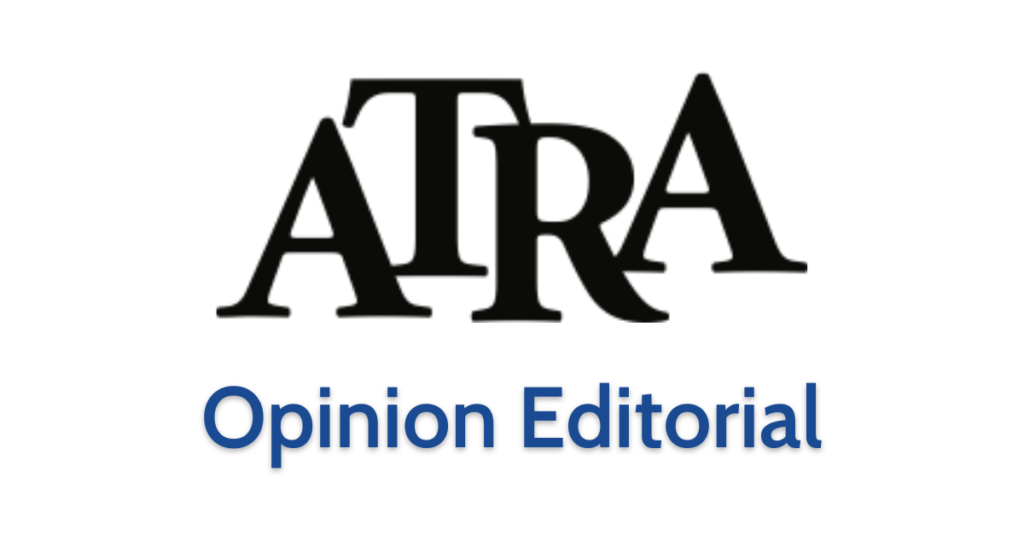‘Highly Unusual’ Rehearing of Louisiana Case Raises Judicial Independence Concerns
Louisiana Supreme Court Waffles Under Political Pressure, ATRA Brief Urges Court to Stand Strong

This op-ed was originally published by Inside Sources. A disturbing trend continues to infiltrate courtrooms across the country where third-party groups — including Wall Street hedge funds, institutional investors and private […]
This op-ed was originally published by Inside Sources.
A disturbing trend continues to infiltrate courtrooms across the country where third-party groups — including Wall Street hedge funds, institutional investors and private companies — provide money to trial lawyers in return for a part of any financial recovery from litigation. These groups pour millions of dollars into funding class-action lawsuits like they are betting on stocks — often with little to no transparency.
This trend, better known as third-party litigation funding (TPLF), is perpetuating a toxic cycle of turning our civil justice system into a for-profit business, focusing on maximizing the value of cases to fund more lawsuits instead of serving justice.
Even more disturbing is that the National Association of Attorneys General (NAAG) is getting in on the action, using its extensive resources to drive lucrative multi-state litigation targeting various deep-pocketed industries.
Historically, NAAG has played an influential role in managing multi-state investigations and lawsuits. The organization claims to be a “nonpartisan national forum providing collaboration, insight, and expertise to empower and champion America’s attorneys general.”
But over time, NAAG’s focus has shifted from promoting collaboration to promoting entrepreneurial litigation. NAAG has primarily turned into an organization that has only one goal: suing businesses for profit.
Far from being a neutral entity, NAAG massively benefits financially from these lawsuits and, in turn, uses its accumulated wealth and resources to help coordinate and facilitate even more lawsuits. The NAAG playbook is starting to come out of the shadows after the recent departure of several of its disgruntled members, including attorneys general from Montana, Texas and Missouri. Additionally, seven other attorneys general joined Kentucky AG Daniel Cameron in sending a letter to NAAG’s executive director outlining their concerns about how the organization is funded.
Currently, NAAG has more than $200 million in assets. The organization distributes these funds as grants to states to help litigation get off the ground. States receive grants to fund research and other expenses to determine participation in a multistate lawsuit. In return, NAAG buys an interest in the outcome of a lawsuit and receives an agreed-upon financial carve-out from the final settlement.
This TPLF process diverts settlement money away from actual victims and provides it to NAAG — putting profits before the public interest. It also allows state attorneys general to avoid using state-appropriated funds or having to go to their respective state legislatures for more funds to pursue financially lucrative or ideologically driven litigation. NAAG’s grant process allows state attorneys general to participate in a multistate action to gain funding to pursue the research and litigation required without having to directly dip into the state appropriation process. This funding side-steps and weakens the checks and balances a state legislature should want to exercise in these situations.
The injection of a third party’s financial interest in litigation threatens a state’s ability to exercise independent judgment in cases where the funder can influence litigation or settlement decisions — changing litigation involving plaintiffs and defendants into a multi-party process with a behind-the-scenes mega-donor. As Cameron explains in his letter to NAAG’s executive director, this process likely violates many state laws that exclusively vests the power of the purse with their legislatures.
Beyond the lack of accountability and transparency of the litigation funding from NAAG, their internal coordination demonstrates how the organization has become a lawsuit factory. When a state pays dues to NAAG, that state attorney general’s office gets access to all the resources of NAAG — including their training and working groups.
The NAAG training classes focus on best practices for filing lawsuits to instructional classes on using new software and analytics to generate new leads. This helps state attorneys general learn how to be more effective at filing large, class-action and mass tort lawsuits against anyone thought to have deep pockets. The NAAG working group serves as a sounding board for case generation focusing almost exclusively on multi-state ligation. Once a litigation target is found, the working group strategizes on which states are best positioned to take the lead on cases. The states are then allowed to trade information on this litigation through information-sharing agreements so that others can lend resources and profit from any settlement.
The exodus of NAAG members who oppose this exploitation of our civil justice system for financial gain should serve as a stark warning. Manufacturing entrepreneurial litigation devastates our economy, takes resources away from actual victims, and further distorts our legal system. NAAG must immediately realign its priorities if it wishes to salvage its original mission of being a credible, non-partisan organization.
Instead of perpetuating more third-party litigation funding, NAAG needs to get back to its core purpose of promoting efficiency and coordination between state attorneys general.
Louisiana Supreme Court Waffles Under Political Pressure, ATRA Brief Urges Court to Stand Strong
Left unchecked, these jurisdictions will continue dragging down economic growth and undermining justice through rampant lawsuit abuse.
Claimants Given Opportunity to Vote on Plan; Judge to Reconsider Scientific Validity of Plaintiffs’ Experts
Legitimate consumer protection demands sound science and impartial analysis — not distorted data designed to manufacture lawsuits.
Law Firms Spent $168M+ on 2.2M Ads in Georgia
ATRA’s Latest Studies Reveal Financial Influence and Lack of Transparency in Pennsylvania’s Campaign Finance Systems